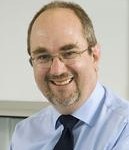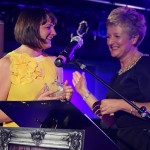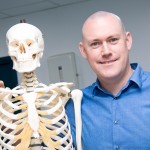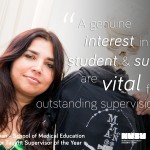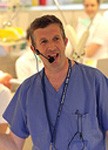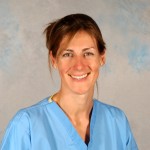 My role is to work with students and staff within the Faculty of Medical Sciences to support new and existing curricular and co-curricular interventions that enhance students’ enterprise skills and entrepreneurial learning.
My role is to work with students and staff within the Faculty of Medical Sciences to support new and existing curricular and co-curricular interventions that enhance students’ enterprise skills and entrepreneurial learning.
The words ‘enterprise’ and ‘entrepreneurship’ have a plethora of connotations. Without a contextual basis this can be very off-putting. I am keen to establish what we mean by ‘enterprise’, and in particular, why it is important to medical sciences.
Our support works along an enterprise spectrum; enterprise skills (e.g. soft skills), leading to entrepreneurial learning (commercial and business awareness within the context of the curriculum) and entrepreneurship (starting an actual business) – all of which can be applied to learning contexts. Enterprise skills development activities include the prospective Enterprise Skills for Psychologist session under development for 2016 stage 1 psychology students. Examples of interventions related to entrepreneurial learning include the Dental Enterprise Workshops for 4th year dentistry students, looking at the underpinnings of running a practice, and supporting the Business for the Bioscientist module within biomedical sciences. Entrepreneurship takes the form of working with students and graduates interested in starting a business, such as Stuart Maitland, co-founder of the medical education platform, Mediwikis, and recent winner of the prestigious Santander Universities Enterprise Awards and £20,000 cash prize.
For the life sciences, innovation and problem-solving are imperative. Students, researchers and practitioners come across unique everyday problems – and are in fact the best placed to solve them. However, they often don’t perceive themselves as ‘problem-solvers’ or ‘enterprising’, and our interest lies in developing opportunities for students to re-think their role as solvers and innovators within the context of their learning. The QAA report (2012) on enterprise and entrepreneurship education within HE highlights the capacity for enterprise to simultaneously enhance contextual learning and provide transdisciplinary knowledge and skills, applicable for a jobs market that is increasingly demanding ‘portfolio careers’ and wider knowledge of business demands. This is especially apparent in the health services, where more often, successful delivery is based on a premise of innovative practices, adaptability and cost-effectiveness. My role is to ultimately create and increase opportunities where students can develop the preparedness they require to navigate meaningful careers in a changing world.
I am organising a lunch for academics who are interested in developing areas of the curriculum where enterprise/entrepreneurial learning would enhance students’ educational experience, and would welcome opportunity to discuss this further.
Alecia Dunn, Entrepreneurial Development Officer, Entrepreneurial Development Unit (EDU), Careers Service

